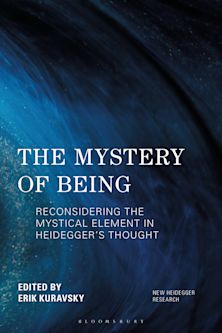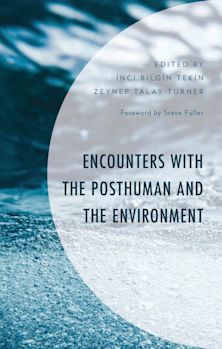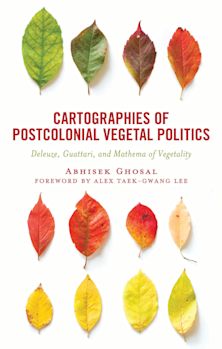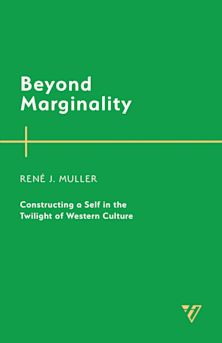How Non-being Haunts Being
On Possibilities, Morality, and Death Acceptance
How Non-being Haunts Being
On Possibilities, Morality, and Death Acceptance
This product is usually dispatched within 1 week
- Delivery and returns info
-
Free CA delivery on orders $40 or over
Description
How Non-being Haunts Being reveals how the human world is not reducible to “what is.” Human life is an open expanse of “what was” and “what will be,” “what might be” and “what should be.” It is a world of desires, dreams, fictions, historical figures, planned events, spatial and temporal distances, in a word, absent presences and present absences.
Corey Anton draws upon and integrates thinkers such as Jean-Paul Sartre, Henri Bergson, Kenneth Burke, Terrence Deacon, Lynn Margulis, R. D. Laing, Gregory Bateson, Douglas Harding, and E. M. Cioran. He discloses the moral possibilities liberated through death acceptance by showing how living beings, who are of space not merely in it, are fundamentally on loan to themselves.
A heady multidisciplinary work, How Non-being Haunts Being explores how absence, incompleteness, and negation saturate life, language, thought, and culture. It details how meaning and moral agency depend upon forms of non-being, and it argues that death acceptance in no way inevitably slides into nihilism. Thoroughgoing death acceptance, in fact, opens opportunities for deeper levels of self-understanding and for greater compassion regarding our common fate. Sure to provoke thought and to stimulate much conversation, it offers countless insights into the human condition.
Table of Contents
Chapter 1: Nothing at the Heart of Existence
Chapter 2: Life and Many Modes of Bodily Non-Being
Chapter 3: Language, Absence, Negation, and Context
Chapter 4: Death and the Possibilities of Human Morality
Chapter 5: A Mythological/Mathematical Postscript
Product details
| Published | Nov 03 2020 |
|---|---|
| Format | Hardback |
| Edition | 1st |
| Extent | 220 |
| ISBN | 9781683932840 |
| Imprint | Fairleigh Dickinson University Press |
| Illustrations | 4 b/w illustrations; |
| Dimensions | 228 x 163 mm |
| Series | The Fairleigh Dickinson University Press Series in Communication Studies |
| Publisher | Bloomsbury Publishing |
Reviews

ONLINE RESOURCES
Bloomsbury Collections
This book is available on Bloomsbury Collections where your library has access.


































